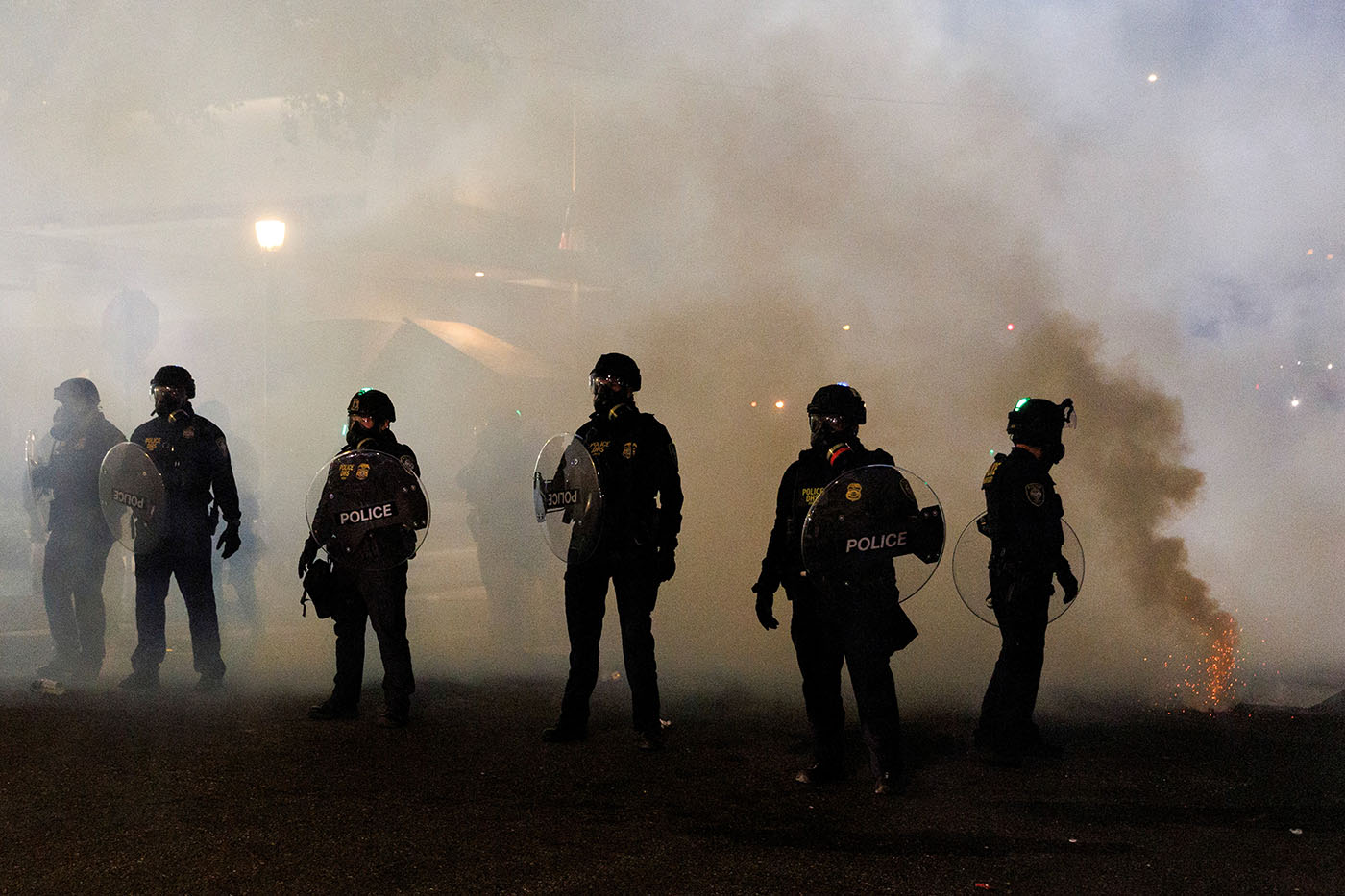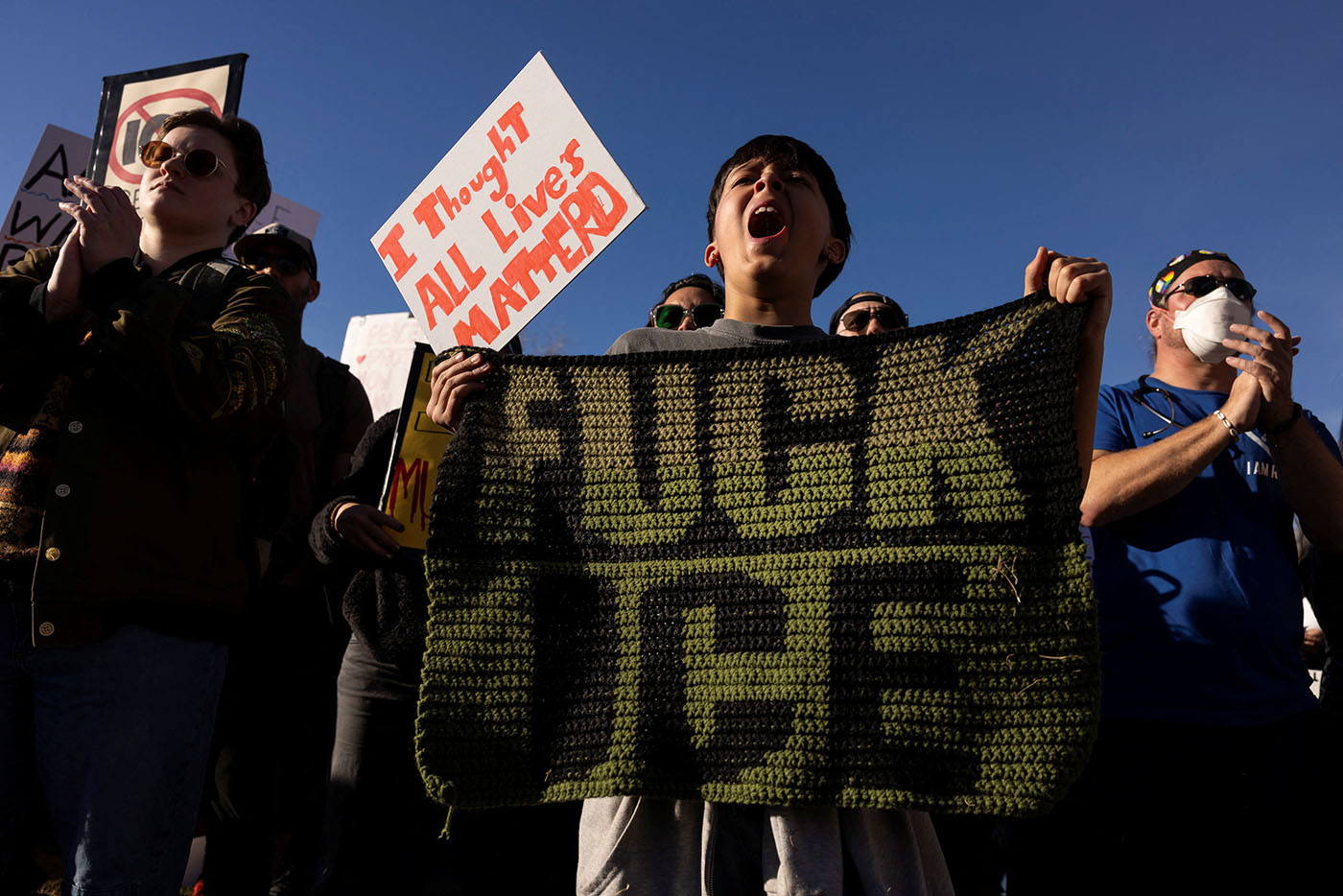By Soraya Ferdman
Since Florida Governor Ron DeSantis signed the “Combating Public Disorder” act into law this past April, civil liberties groups across the country have questioned its constitutionality. Now, two separate groups have sought to challenge the law in federal court.
One of the lawsuits is being led by the ACLU of Florida, together with the NAACP Legal Defense and Educational Fund Inc. (LDF), and the Community Justice Project (CJP). The coalition filed its suit on May 11th in United States District Court for the Northern District of Florida on behalf of six Black-led organizations who believe HB1 will have a chilling effect on protest.
In their suit, the ACLU, LDF, and CJP claim the law contains overbroad language that can be used to arrest peaceful protesters, encourages violence towards demonstrators by giving drivers immunity for seriously injuring a protester blocking traffic, and creates new penalties that will have a disproportionate impact on Black Floridians.
Of particular concern is a provision that makes it a crime to merely participate in a protest that has turned violent. The law’s language states a person commits a riot “if he or she willfully participates in a violent public disturbance involving an assembly of three or more persons, acting with a common intent to assist each other in violent and disorderly conduct.”
Kara Gross, the legislative and senior policy counsel at the ACLU of Florida, said that the provision’s wording gives police broad discretion in determining who to arrest at a protest scene.
“Under this law, if I go down to a protest with my family to support a cause I care about and that protest turns violent through no fault of my own, I could be arrested and charged for participating in a riot,” Gross explained.
Another provision, she notes, prohibits individuals “from using or threatening to use imminent force against another person to do or refrain from doing any act or to assume, abandon, or maintain a particular viewpoint under certain circumstances.” Gross said that this section was so broadly written that it could apply to a child who screams at another child to “give him his backpack or else I’ll punch you.”
The second lawsuit is being led by attorney Aaron Bates on behalf of Black Lives Matter Tampa, the Community Empowerment Project, and an Orlando resident named Lewanna Gelzer. The complaint was filed in the United States District Court for the Middle District of Florida Orlando Division, and it argues that the law violates the First, Eighth, and Fourteen Amendments to the constitution.
“The breathtaking scope of the Bill includes granting civil immunity to people who drive into peaceful demonstrators if such demonstration blocks a road, prevents people accused of ‘rioting’ from bailing out of jail until after their first court appearance, increases penalties for assaulting law enforcement officers while engaging in a ‘riot,’ penalizing local governments that interfere with efforts to stop a ‘riot,’ and allows law enforcement agencies that face funding reductions to file objections,” the Bates’ complaint states.
Bates, who has practiced civil rights law for 10 years before switching to corporate law, said that HB1 was “the worst piece of legislation he ever read” and that “he didn’t understand how it wasn’t shut down.”
“The ultimate irony here is that our governor was on Tucker Carlson last summer bragging about how well Florida handled and respected protesters’ free speech rights; how we didn’t have a single destroyed building or a single debt arising from demonstrations or protests. And now we have a governor who has passed one of the most restrictive bills in the country because he wants to run for president in 2024,” Bates said.
Bates is planning to convince the court to strike down the whole law as unconstitutional. He believes he has a good chance of winning, he said, because federal courts have struck down laws in South Dakota and Virginia that “have a lot less bite” than Gov. DeSantis’ bill.
“I am a very pessimistic attorney, but I am very optimistic about our chances,” Bates said.
Tags



